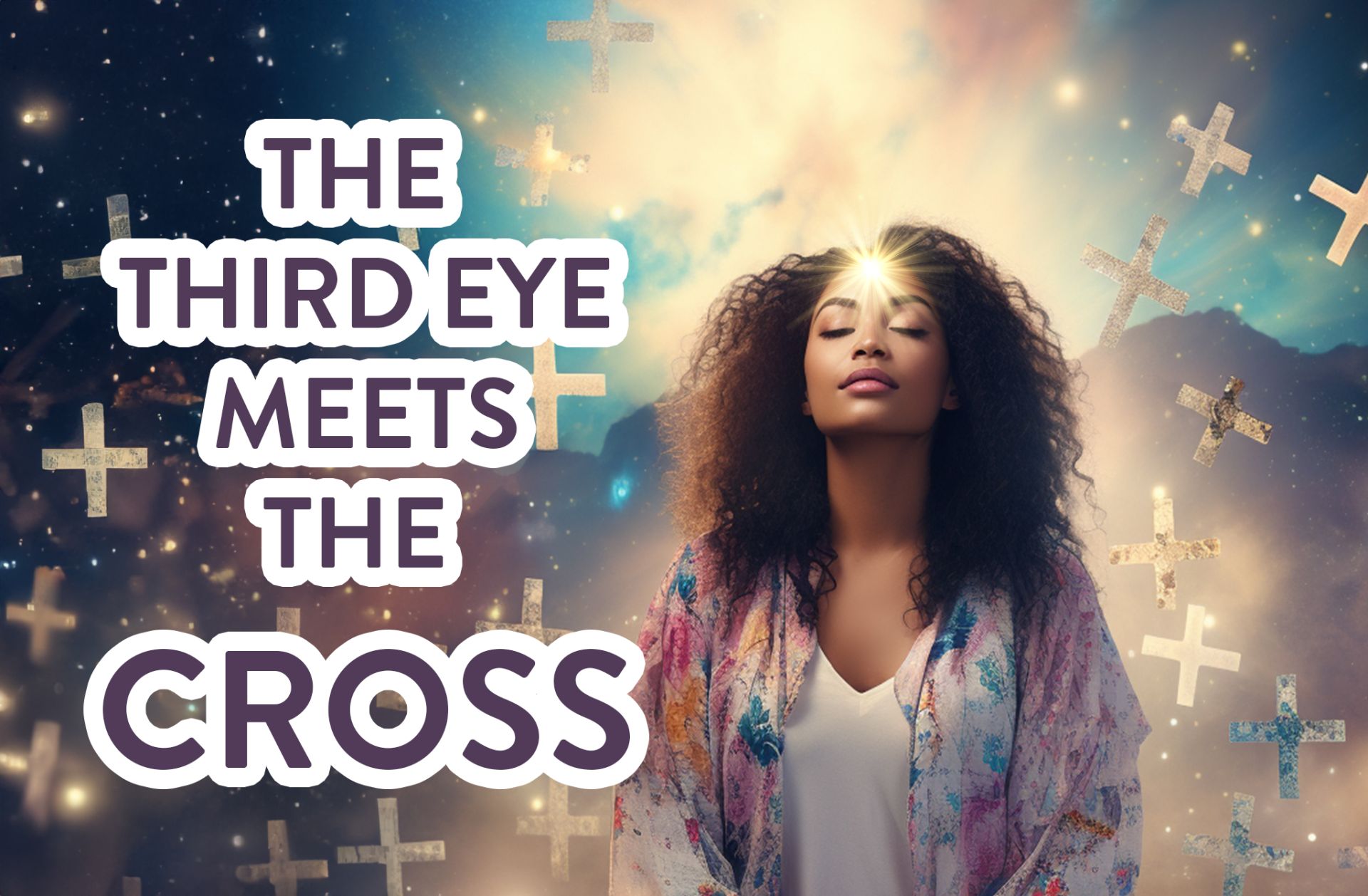The Third Eye Meets the Cross
The Bible & Clairvoyance

The journey of faith and spirituality is an ever-evolving road, one that invites continuous exploration and learning. Today, let's venture into a thought-provoking discussion as we attempt to demystify a concept that has been a source of intrigue for centuries - the Third Eye - and explore its potential compatibility with Christian beliefs.
The Third Eye, deeply embedded within Eastern spiritual philosophies, represents an enlightened state, a heightening of intuition, and an ability to perceive beyond the physical realm. For many in the Western world, where Christianity is prevalent, the concept of the Third Eye may seem foreign, or even contradictory to traditional Christian beliefs.
However, with a closer examination, we find surprising parallels.
However, with a closer examination, we find surprising parallels.
Paul, the Apostle of Christ, discusses the idea of spiritual gifts in his letters to the Corinthians. He references wisdom, prophecy, and discernment, all emanating from the Holy Spirit. These gifts strongly resonate with the qualities associated with the Third Eye: insight, intuition, and spiritual perception.
This striking correlation invites us to consider the Third Eye as another language for spiritual discernment, potentially symbolizing the Holy Spirit's guidance towards a higher understanding and connection with God.
Approached from a standpoint of love and the quest for wisdom, the concept of the Third Eye moves far from anything sinister or demonic.
Approached from a standpoint of love and the quest for wisdom, the concept of the Third Eye moves far from anything sinister or demonic.
Indeed, as James 1:5 in the New Testament highlights, 'If any of you lacks wisdom, you should ask God, who gives generously to all without finding fault, and it will be given to you.' This scripture reaffirms the Christian tradition of seeking divine wisdom, a pursuit that aligns with the metaphorical purpose of the Third Eye.
Taking a deeper dive into this subject, we can glean numerous instances in the Bible where revered figures are portrayed as having spiritual visions, seemingly accessing their spiritual insight, or what could be equated to 'clairvoyance' in modern terminology.
From Joel's prophecy that foretold of a time when people would have visions and dreams inspired by God (Joel 2:28, Acts 2:17), to the Apostle John's visions leading to the Book of Revelation, the Bible is replete with examples of spiritual insight beyond ordinary senses. Moreover, figures like Daniel, the prophet who interpreted King Nebuchadnezzar's dream, provide further examples of this divine intuition (Daniel 2).

Outside the biblical narrative, Christian history abounds with figures whose experiences resonate with the essence of the Third Eye. Saint Paul's transformative vision of Jesus on the road to Damascus, Saint Joan of Arc's visionary guidance during the Hundred Years' War, and mystics like Julian of Norwich and Saint Teresa of Avila, known for their spiritual revelations, all echo the Third Eye's premise of heightened spiritual perception.
In conclusion, the exploration of the Third Eye within a Christian context not only invites introspection but fosters greater spiritual inclusivity. Recognizing that spiritual truth can be expressed through various cultural and traditional lenses opens avenues for mutual respect and understanding.
Ultimately, while the words we use may differ, the journey towards spiritual wisdom is a shared human endeavor. The Third Eye metaphor could serve as a valuable tool for Christians in their quest for spiritual growth, deepening their understanding of the divine, and harnessing the gifts offered by the Holy Spirit.
As we close this intriguing exploration, the hope remains that it sparks thought-provoking conversations and reflections, reminding us all of our collective pursuit of spiritual wisdom. No matter the path we take, may our spiritual journeys lead us closer to the divine wisdom we seek.









